This article is written by Harshit Kumar. This is a detailed analysis of the case of State of Bihar vs. Charusila Dasi (1959). This case revolves around the applicability of the Bihar Hindu Religious Trusts Act 1950 on a property that is outside the state of Bihar but carries a significant function in the state as well. The significance of the case lies in the interpretation of the Act and the doctrine of territorial nexus. This article discusses the doctrine in detail and also explains the various laws and cases that were discussed in this case. This case highlights the significance of distinguishing between public and private trusts, concerning the religious trust and the jurisdiction of the state to make laws and impose taxes on the income of such trusts.
Table of Contents
Introduction
Religious trusts and their classification as public or private have often been subject to debate under Indian laws. In the Hindu community, it is important to classify religious trust as public or private to determine the scope of their activity and the obligations of their charity. Private and public trusts are governed by different frameworks. Public trusts are governed by stringent rules and are for public benefit or for a particular community, private trusts, on the other hand, are usually more flexible and are created for the benefit of an individual or a family. Public trusts, on the one hand, are required to engage in charitable activities that can benefit the public at large; private trusts, on the other hand, have small and restricted objectives for the benefit of an individual or a family. As per the regulatory requirements, the activities of public trusts are scrutinised closely, their accounting practices are required to be transparent and they are required to provide regular reports to the regulatory bodies, whereas, private trusts are not required to provide any such reports; however, they are expected to work as per the law.
When these distinctions are made clear, it becomes very easy to ensure that religious trusts are working properly to fulfil their original purposes while complying with laws and regulations. These distinction queries explore the key considerations and legal precedents that guide the classification of a religious trust as private or public, focusing on the important case of State of Bihar vs. Charusila Dasi (1959). This is a landmark case that revolves around the management of a charitable trust in the state of Bihar. This is a crucial case in Indian jurisprudence for its implications on trust law and governance. This article will examine every issue raised in the case and discuss in detail how the doctrine of territorial nexus works when the dispute is related to a property that is situated in one state but is managed by another state.
Background of the case
The present case involves an appeal that was taken by the State of Bihar against the Charusila Dasi Trust. The main issue, before this appeal, started with a writ petition that was filed by Srimati Charusila Dasi against the Bihar State Board of Religious Trusts. In the High Court of Patna, this petition was allowed and was issued in the nature of a writ of certiorari, quashing the proceedings under Sections 59 and 70 of the Bihar Hindu Religious Trusts Act 1950. The Patna High Court also issued a writ of prohibition forbidding the Bihar State Board of Religious Trusts from taking any other actions against Srimati Charusila Dasi related to the trust under question. The State of Bihar obtained a certificate from the Patna High Court that allowed it to take an appeal to the Supreme Court on the ground that the case was fulfilling the requirements of Article 133 of the Constitution of India.
This case concerns a religious endowment located in Bihar, with its trustees based in Bihar as well. This is a genuine relationship between the religious organisation and the property related to it. The property and the religious organisation were one integrated part, and the trust property is impacted by the decision of the trustees. Therefore, even though a few parts of the property of the trust were located outside Bihar, the legislature of Bihar had the authority to make laws that could affect those properties.
Doctrine of Territorial Nexus
This is one of the crucial cases related to the doctrine of territorial nexus. The doctrine of territorial nexus is a principle that provides that a law is applicable to a particular organisation or activity provided there is a sufficient relationship or nexus between the organisation or activity and the territory to which the law is applicable. The doctrine is used to determine whether the law has extraterritorial applicability or not. The doctrine is embedded under Article 245 of the Constitution, which explains the extent of applicability of the law made by the parliament and by the legislatures of states.
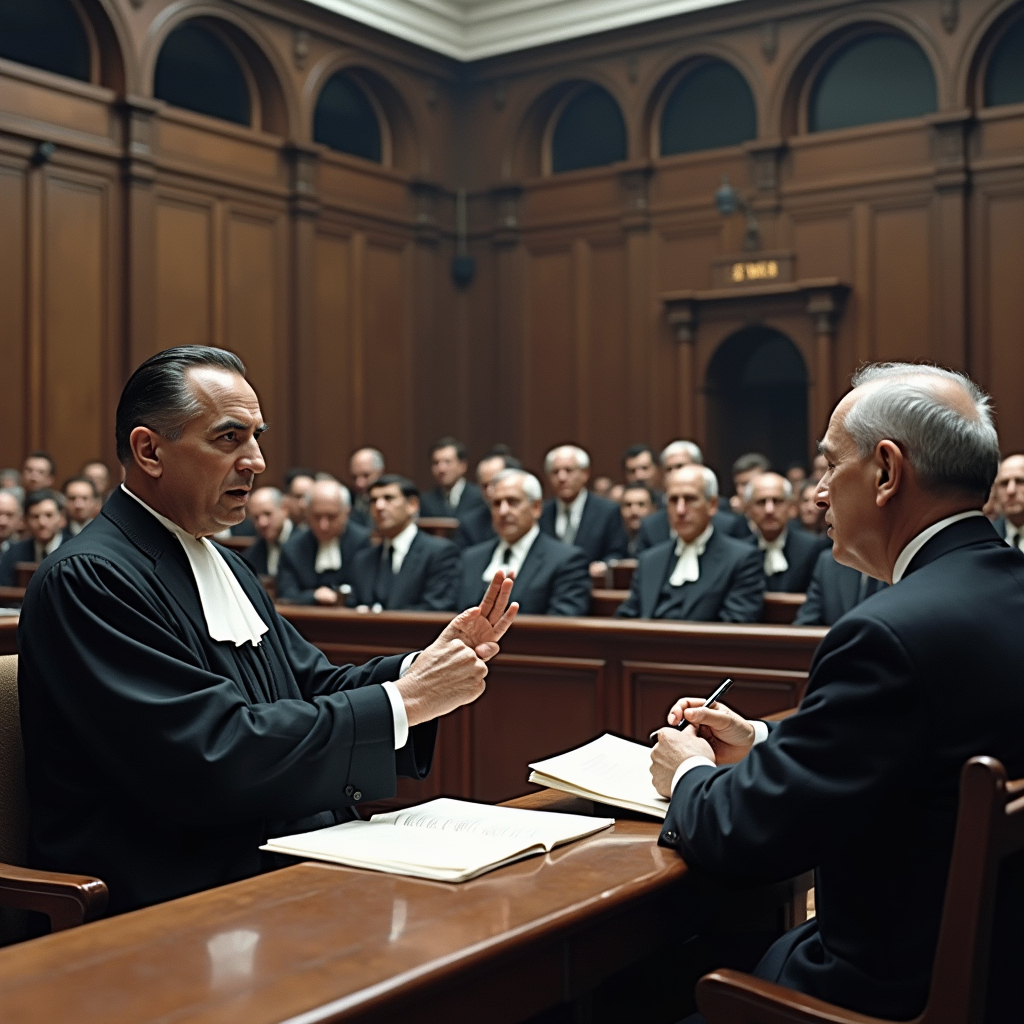
In a federal or quasi-federal Constitution, the legislative powers are divided between the centre and the states and this division is with respect to territory and topics of legislation. Article 245 explains the ambit of the territorial limits of the legislative power that the parliament and the state legislature hold. The parliament has the power to make laws that can have extra-territorial operation; the state legislature does not have this power. Therefore, any Act passed by the state legislature that provides any extra-territorial operations in its provisions can be challenged in court unless the extra-territorial operation can be sustained on the ground of territorial nexus.
State legislation related to taxes have often been in question and have frequently been challenged on extra-territorial grounds, and the courts in such cases have often applied the doctrine of territorial nexus in determining their validity. If it is found that there is a territorial nexus or connection between the state that is seeking tax and the person from whom the state is seeking tax, that tax legislation is upheld. But that connection must be sufficient. This connection sufficiency is determined through two elements, namely,
i. There must be a real connection, not an illusionary one; and
ii. The proposed liability must be relevant to the connection.
This was proposed in the landmark case of State of Bombay vs. R.M.D. Chamarbaugwala (1957). The doctrine of territorial nexus is not restricted to taxing legislation. In the case of State of Bihar vs. Charusila Dasi (1959), the doctrine of territorial nexus played a very crucial role. The doctrine helped in determining the applicability of the Bihar State Board of Religious Trust 1950 to a religious endowment in Bihar that has properties outside the state. The doctrine is important in this case because it helped to determine the connection between the religious institutions and the property related to them, which is not illusionary but real. This doctrine helped to determine whether the legislature of Bihar has the power to make laws that affect the property of the trust, which is situated outside the state. The Court in this case decided that the legislature of Bihar has the right to make laws that will be applicable to religious trusts with property outside the state.
Facts of the case
The case is related to a trust that was established by Srimati Charusila Dasi, widow of Akshay Kumar Ghosh. This trust was established through a trust deed that was executed on 11/03/1938. Charusila Dasi, at that time, used to stay in a house named Charu Niwas, situated in Deoghar, Bihar. The trust deed included the properties that were under her ownership and possession, and these were listed in Schedules B, C and D, which are listed below:
- Schedule B: The three bighas land and some land in Karanibad Mohalla, Deoghar, with buildings and structures.
- Schedule C: Charu Niwas in Karanibad, Deoghar, and Bihar
- Schedule D: Some houses and lands in Calcutta, worth Rs 8,50,000
In a letter to the Superintendent of the Bihar State Board of Religious Trust, it was mentioned on behalf of Srimati Charusila Dasi that the total annual income of these properties was approximately Rs 87,839.
There was a deity established in the house of Charusila Dasi, named Iswar Srigopal and she used to perform its “puja” (worship) every day. In memory of her deceased son, Dwijendra Nath, she was constructing a twin temple, named Jugal Mandir (twin temple) and Nat Mandir (entrance hall), on the land mentioned in Schedule B. In one of the temples, she intended to shift the deity of Iswar Srigopal along with some other deities and the marble image of her religious preceptor, Sri Sri Balanand Brahmachari, to the other temple. Further, she planned to build a hospital in Karanibad for Hindu females in the memory of her husband, named Akshay Kumar Female Hospital.
The properties were transferred to five trustees by the trust deed, which included Charusila Dasi and her adopted son Debi Prasanna Ghosh. The other three members were Amrendra Kumar Bose, Tara Shanker Chaterjee and Surendra Nath Burman, these were non-family members. Amrendra Kumar Bose was later replaced by Dr. Shailendra Nath Dutta after he resigned.
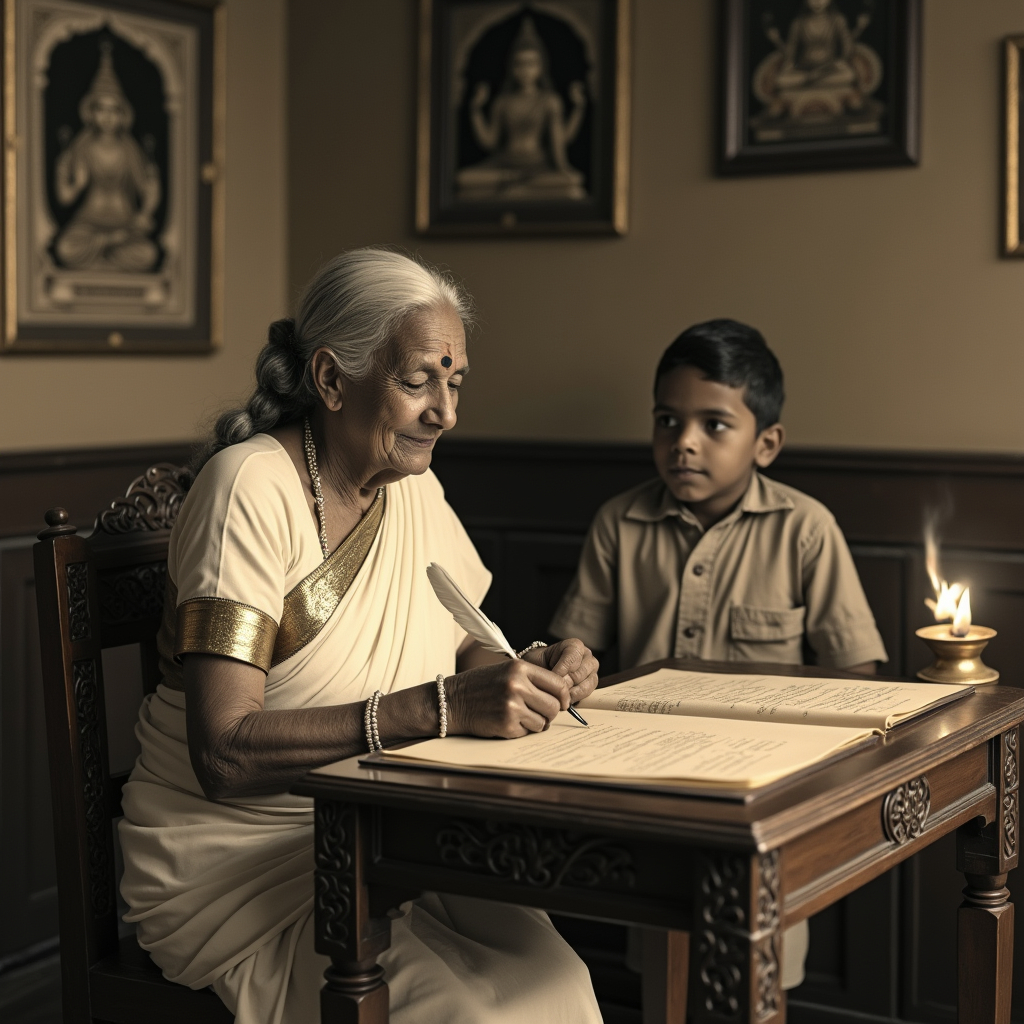
The following duties were imposed by the trust:
- Construction: Completion of the temples and the Nat mandir at a price not exceeding Rs 3,00,000, which was funded by the trust estate and donations.
- Installation: For the consecration and installation of the deity of Iswar Srigopal and the marble image of Sri Sri Balanand Brahmachari, through a festival and ceremony.
- Maintenance: Ensuring the daily worship and annual festivals for the deity of Iswar Srigopal, with an annual expenditure worth Rs 13,600 and of the marble image of Sri Sri Balanand Brahmachari, with an annual expenditure of Rs 4500. The daily worship is “sheba puja” of the marble image of Shri Balanand Bramhachari, and annual celebrations include “janmatithi,” which is the anniversary of the installation of the marble image; “Guru Purnima,” which is the full moon in the Bengali month of Ashar; and “Tirodhan,” which is the anniversary of the day on which Shri Balanand Bramhachari gave up his body.
- Hospital and Dispensary: Establishment and running of the hospital for Hindu ladies (named Akshay Kumar Female Hospital) and the dispensary for the other patients, irrespective of their religion, with an annual expenditure of Rs 12,000 or the leftover amount from the temple expenses and the allowances of the trustees. However, the construction of the hospital and dispensary was to start after the completion of the temples and the establishment of the deities.
The power, function and duties of the trustees, along with the meeting rules, were outlined in Schedule A. The temples were constructed and the deities and the image were established by the time of the dispute, but the construction of the hospital and dispensary was yet to start.
The dispute started when the Superintendent of the Bihar State, Board of the Religious Trust, issued a notice dated 27/10/1952, to Charusila Dasi, requesting a return concerning the trust under Section 59 of the Bihar Hindu Religious Trusts Act 1950. In response to that letter, Charusila Dasi said that the trust was a public endowment in which the public had no interest, as it was for the worship of the family idol. Therefore, Section 59 was not applicable. The Superintendent’s disagreement led to further correspondence, which resulted in a notice dated 05/02/1953, in which it was stated that a fee would be accessed under Section 70 of the Bihar Hindu Religious Trusts Act 1950.
Unhappy with this notice, on 06/04/1953, Charusila Dasi approached the High Court of Patna under Article 226 of the Constitution, praying to quash the proceedings by the Bihar State Board of the Religious Trust on the ground that the trust was a private endowment and the Bihar Hindu Religious Trusts Act 1950 is ultra vires to the Constitution as it infringed her fundamental rights under Article 19 of the Constitution.
The Patna High Court declared the trust to be a private endorsement that was established for the worship of family idols and thus was outside the purview of Sections 59 and 79 of the Bihar Hindu Religious Trusts Act 1950. Thus, quashed the proceedings under Sections 59 and 70, gave a decision in favour of Charusila Dasi, and asked to stop any further proceedings concerning the trust.
Aggrieved by the decision of the Patna High Court, the state obtained a certificate under Article 133 of the Constitution, from the High Court and took the appeal to the Supreme Court under the same Article.
Issues raised in State of Bihar vs. Charusila Dasi (1959)
The following issues were raised in the case:
- Whether the trust, named Srimati Charusila Trust, was a private trust or a public trust and whether the provisions of the Bihar Hindu Religious Trusts Act 1950 were applicable to it?
- Whether the provisions of the Bihar Hindu Religious Trusts Act 1950 were unconstitutional and infringing the fundamental rights under Part III of the Constitution of Srimati Charusila Dasi?
- Whether the trust had a sufficient territorial nexus with the State of Bihar, considering that the religious endowment was situated in Bihar, but the trustees were operating from outside of Bihar?
- Whether the trust was a private trust for taxation purposes, and whether the income of the trust was exempted from tax under Section 4(3) of the Income Tax Act?
Contention of the parties
Appellant
Following were the contentions from the appellant’s side:
- The Srimati Charusila Dasi Trust was a public trust established for the benefit of the Hindu community and not a private trust; therefore, the decision given by the High Court was not applicable.
- The trust had sufficient nexus with the State of Bihar, as its religious endorsement was situated in Bihar and the trustees used to operate in Bihar and this entitled the State of Bihar to impose tax on its property; therefore, the Bihar Hindu Religious Trusts Act 1950 was also applicable.
- The provisions of the Bihar Hindu Religious Trusts Act 1950 were constitutional and did not infringe upon any fundamental rights of the respondent.
- Since it was a public trust, the income of the trust was taxable under Sections 59 and 70 of the Bihar Hindu Religious Trusts Act 1950.
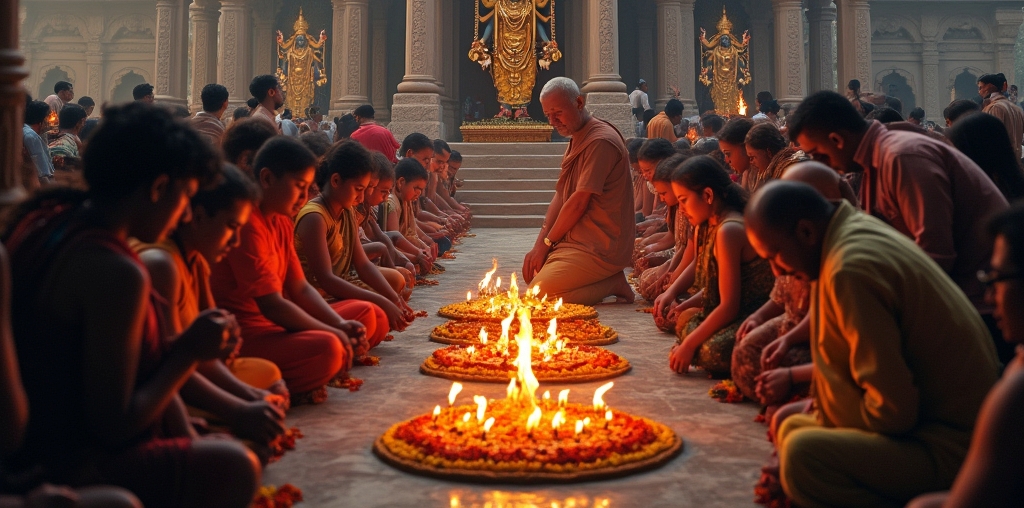
Respondent
Following were the contentions from the respondent’s side:
- The Charusila Dasi Trust was a private endowment that was established to worship family idols, and therefore the provisions of the Bihar Hindu Religious Trusts Act 1950 were not applicable.
- The fact that Srimati Charusila had the idol of Iswar Srigopal in her home proves that the origin of the trust was private and the installation of this idol in one temple and the marble image of Sri Balanand Brahmachari did not change the nature of the trust from private to public.
- The establishment of the hospital for Hindu women and dispensary was merely incidental to the other main objectives of the endowment.
- The provisions of the Bihar Hindu Religious Trusts Act, 1950, were unconstitutional as they infringed upon the rights protected under Part III of the Constitution.
- The religious endowment was situated in Bihar but the trust had properties in another state outside of Bihar; therefore, there was no territorial nexus and the provisions of the Bihar Hindu Religious Trusts Act 1950 were not applicable to the properties situated outside the State of Bihar.
- The income of the private trust was not taxable under Sections 59 and 70 of the Bihar Hindu Religious Trusts Act 1950.
Laws discussed in the case
The Bihar Hindu Religious Trust Act 1950
Section 1 of Bihar Hindu Religious Trust Act
Section 1(2) states that the Act is applicable to the whole of the State of Bihar.
This Section was referred to in the context of determining the territorial nexus between the trust and the state of Bihar. This provision discussed the applicability of the Bihar Hindu Religious Trust Act 1950 to the trust situated in Bihar with properties in place outside Bihar.
Section 2 of Bihar Hindu Religious Trust Act
Section 2 is the definition part of the Act. Clause (l) of this Section explains ‘Religious Trust’ which is established as per Hindu law for religious, pious and charitable purposes. But this Section does not include the private endowment, which is for the worship of the family idol and receives no public offerings or donations, and also a trust made according to the Sikh religion established for the benefit of the Sikh community.
This Section was referred to in this case to determine the definition of public religious trust.
Section 3 of Bihar Hindu Religious Trust Act
Section 3 states that the Act is applicable to all religious trusts, whether they are created before or after the commencement of the Act if any of the property is situated in the State of Bihar.
This Section was referred to to determine the applicability of the Act to the Charusila Dasi Trust.
Section 59 of Bihar Hindu Religious Trust Act
Section 59 puts a legal obligation on the trustees to give all the essential details about the religious trust to maintain transparency and regulatory compliance, within six months, after the members of boards and board president are announced. In case of a trust that is formed after the announcement of the board, the trustee must submit the details within six months of that announcement. Further, this information must be verified according to the procedure established under the Civil Procedure Code, 1908.
In this case, the Bihar State Board of the Religious Trust was carrying out proceedings against the Charusila Dasi Trust, under the Act, which was quashed by the Patna High Court on the ground that the trust is a private endowment.
Section 70 of Bihar Hindu Religious Trust Act
Section 70 puts a duty on the trustee; they are required to pay a fee to the Bihar State Board of the religious trust, which will not exceed five per cent of the total earnings of the trust for the purpose of defraying the expenses incurred.
The Superintendent of Bihar State Board of the Religious Trust sent a notice to Srimati Charusila Dasi to pay the return in respect of the trust, which was not taken as a private trust under the Act by them. Srimati Charusila Dasi responded to the notice, saying that the trust was a private trust; therefore, the Act does not apply to this situation.
The Constitution of India 1950
Article 19 of the Constitution
Article 19 explains the fundamental rights provided to the citizens of India related to freedom of speech, peaceful assembly, the formation of associations, unions or cooperative societies, to move freely in the territory, to settle and reside anywhere in the territory, and carry on any business, occupation or business.
This Article was referred to to determine the constitutionality of the Bihar Hindu Religious Trusts Act 1950 and to settle that the Act is not infringing any fundamental right of the respondent.
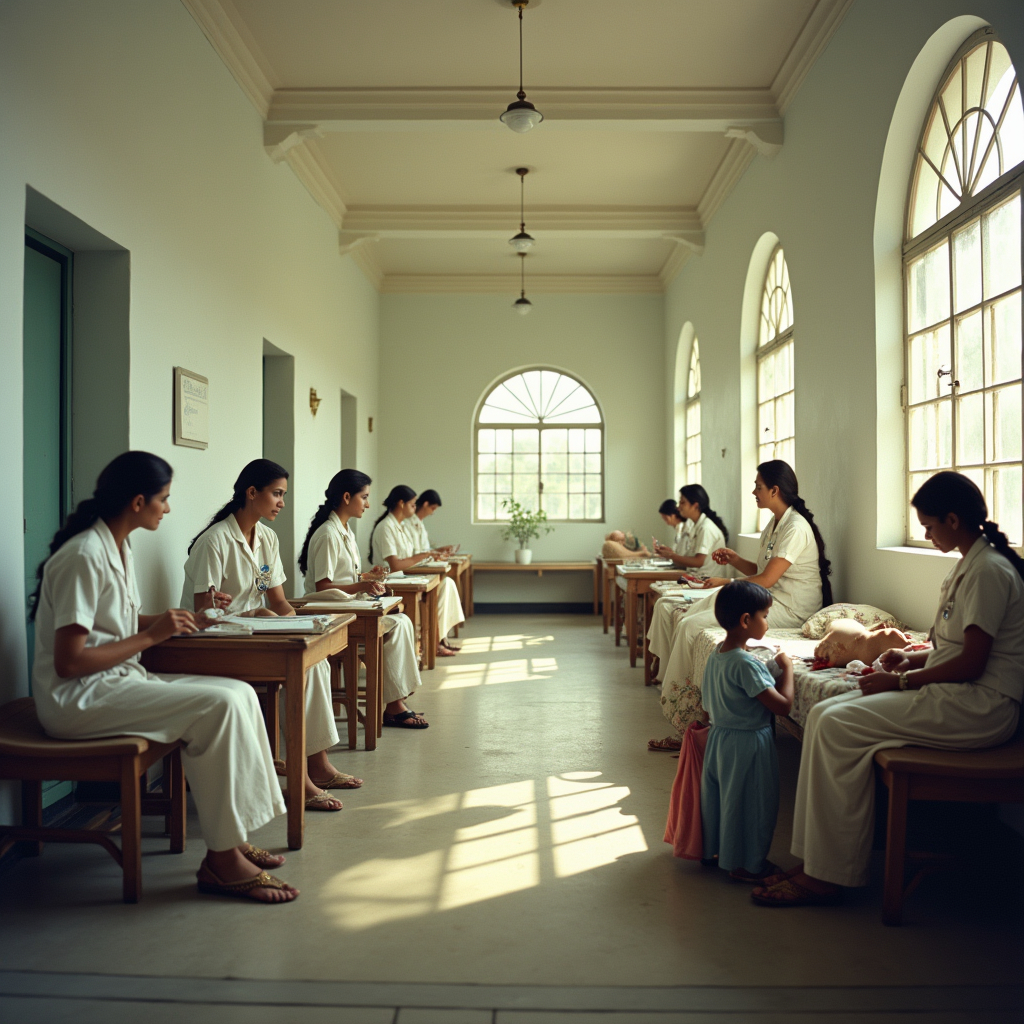
Article 133 of the Constitution
Article 133 explains the appellate jurisdiction of the Supreme Court in any civil matter in which the High Court feels there is a substantial question of law that is required to be decided and provides a certificate under Article 134A to take the appeal to the Supreme Court.
In this case, the appellants obtained a certificate from the High Court and took the appeal to the Supreme Court.
Article 226 of the Constitution
Article 226 explains the power of the High Court to issue certain writs, namely writ of habeas corpus, mandamus, certiorari, prohibition and quo warranto.
In this case, Srimati Charusila Dasi approached the High Court of Patna through an appeal to quash the proceedings by the Bihar State Board of the Religious Trust against the trust. The High Court passed the writ of certiorari quashing the proceedings against the trust under Sections 59 and 70 of the Bihar Hindu Trust Act 1950 and the writ of prohibition to restrain the Bihar State Board of the Religious Trust from carrying on any further proceedings against the trust.
Article 245 of the Constitution
Article 245 explains the extent of laws made by the parliament and the state legislature. Clause (1) explains that the Parliament can make the laws for the whole or any part of the Indian territory and the State Legislature can make laws for the whole of the part of the State. Clause (2) explains that on the ground that any law made by the Parliament would have extra-territorial operations, it shall not be deemed to be invalid.
This Article was referred to in this case to determine the applicability of the Bihar Hindu Trust Act 1950 to the Charusila Dasi Trust.
Article 246 of the Constitution
Article 246 explains the legislative authority of the centre and the state in the union, state and concurrent list. Clause (1) explains that the Parliament can make laws related to the matters enumerated in List I of Schedule 7 (Union List). Clause (3) explains the State Legislature can make laws related to the subjects mentioned in List II of Schedule 7 (State List). Clause (2) explains that the Parliament and the State Legislature have the power to make laws related to the subjects mentioned under List III of Schedule 7 (Concurrent List). The last Clause (4) explains that the Parliament holds the power to make laws related to the subjects that are not mentioned in the State list.
This Article was again referred for determining the applicability of the Bihar Hindu Trust Act 1950 to the religious endowment and the institutions within the State of Bihar.
Schedule 7 (Concurrent List) Item 28
Schedule 7 (Concurrent List) Item 28 provides power to the union and state legislatures to make laws about charities and charitable institutions, charitable and religious endowments and religious institutions.
In this case, this part of Schedule 7 helped to determine the authority of the State of Bihar to make laws for property that is outside Bihar but a part of it is operating in the State of Bihar.

Income Tax Act, 1922
Section 4(3)(i) of Income Tax Act
Section 4(3)(i) provided that the Act does not apply to the income obtained from property that is held under a trust or other legal obligation that is wholly meant for religious or charitable purposes. If a part of the income is used for any religious or charitable purposes, then that portion of the income is exempt from the application of the Act.
In this case, this Section was referred for determining tax exemptions on the income of the Charusila Dasi Trust.
Judgement in State of Bihar vs. Charusila Dasi (1959)
The Apex Court in this case ruled that the Charusila Dasi Trust was a public trust established for the benefit of the broader Hindu community, therefore, income made by the trust was taxable under Sections 59 and 70 of the Bihar Hindu Religious Trusts Act 1950. What led the court to this decision will be understood through the various cases the Court referred to.
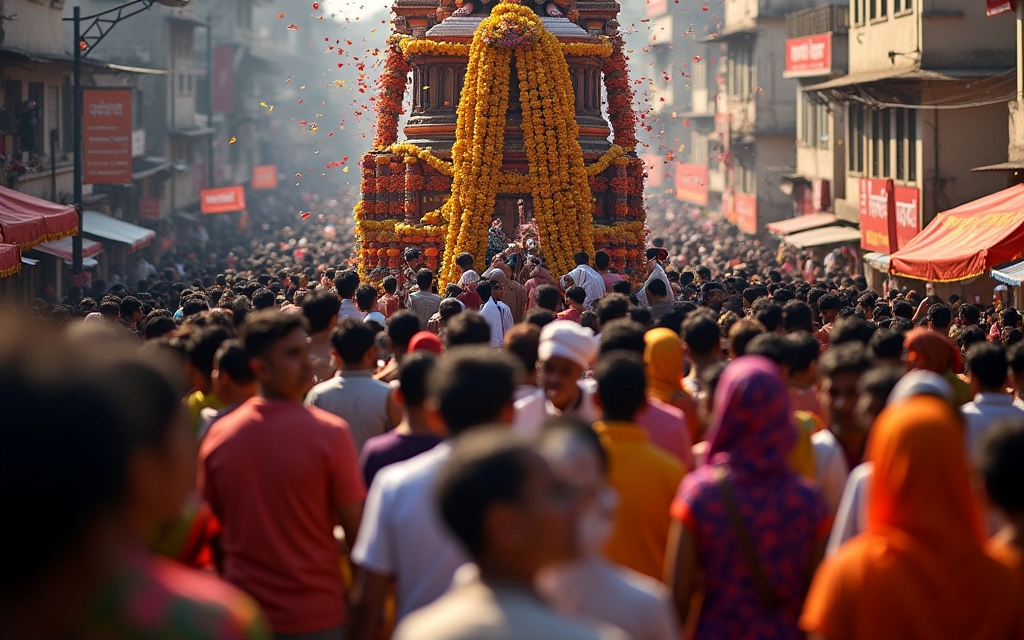
Cases discussed
- Deoki Nandan vs. Murlidhar (1956): The Supreme Court in Deoki Nandan vs. Murlidhar (1956) emphasised the fact that whether the trust is either private or public is determined by the intention of the founder. This case specifically questioned whom the founder intended to provide the right to worship the shrine was it an individual (or a family) or the public in general. It was further discussed in this case that if the property is dedicated to the worship of the family idol and only family members will be worshipping the shrine, then it is a private endowment. On the other hand, if the beneficiaries are not family members, then it is a public endowment because it intends to benefit the general public. In this case, the idol was placed in a separate building and was built separately for the purpose of worshipping the idol, furthermore, the trust deed was in a formal structure that involved the trustees holding the property for religious and charitable purposes. Therefore, considering the position of the idol and the nature of the trust deed, the trust in this case was concluded to be a public endowment.
- In re Charusila Dasi & Others (1946): The case of In re Charusila Dasi & Others (1946) was a dispute over the categorisation of the trust for the purpose of income tax under the provisions of the Income Tax Act 1922 for the accounting year 1938-39. It was contended by the trustees that the trust was established for public, religious and charitable purposes, and therefore the income must be exempted from tax under Section 4(3)(i) of the Act. The Commissioner of Income Tax, on the other hand, contended that the trust was private, however, the income was actually for the hospital and dispensary. The Calcutta High Court ruled that the income used for the hospital and the dispensary was exempted from tax, further on the basis of the trust deed, specifically the provision related to the offerings to the deity, indicating that the trust was private in nature. The Supreme Court disagreed with this interpretation and discussed that the offerings made to the deity become the property of the deity and this does not confer any rights to the public on these offerings. The trust deed was examined comprehensively and it was concluded that despite the restrictive clauses, the trust intended to serve the public religious and charitable purposes, and therefore, the entire income must be exempted from the income tax, affirming its categorisation as a public religious and charitable trust.
- Tata Iron & Steel Co. Ltd. vs. State of Bihar (1958): In the case of Tata Iron & Steel Co. Ltd. vs. State of Bihar (1958), the Supreme Court discussed the issue of legislative jurisdiction and the territorial nexus in relation to taxation. The case revolves around the tax imposed by the State of Bihar on Tata Iron & Steel Co. Ltd. This company functioned outside Bihar but had some business activities running in the state. The court said that for the passing of the law and imposing the tax, there must be a real and no illusionary connection between the subject matter of the law and the territory of the state. It was decided that, although Tata Iron & Steel Co. Ltd. was operating outside Bihar, it had some significant business running in Bihar as well and this proved a sufficient territorial nexus. Therefore, this justifies the passing of the law as well as imposition of tax by the authorities of Bihar on the activities of the company, ensuring the law was not extra-territorial or unconstitutional.
- Prasaddas Pal vs. Jagannath Pal (1932): In the case of Prasaddas Pal vs. Jagannath Pal (1932) the matter was related to an endowment deed that provided properties for the “sheba” (worship) of the family deity, which was placed in one of the properties. Further, the purpose of the endowment was to feed the poor and for other charitable work. The idol of the deity was established in a residential quarter and the “shebaitship” (management of worship) was restricted to the family members of the founders. The court here decided that feeding the poor and other charitable work was not separate work but was incidental and primarily related to idol worship. These charitable works were a part of “debasheba” (service to the deity). Therefore, these works were not standalone charitable works. The Supreme Court disagreed with the ruling of the case and observed that the trust was a public endowment that was established for the public benefit.
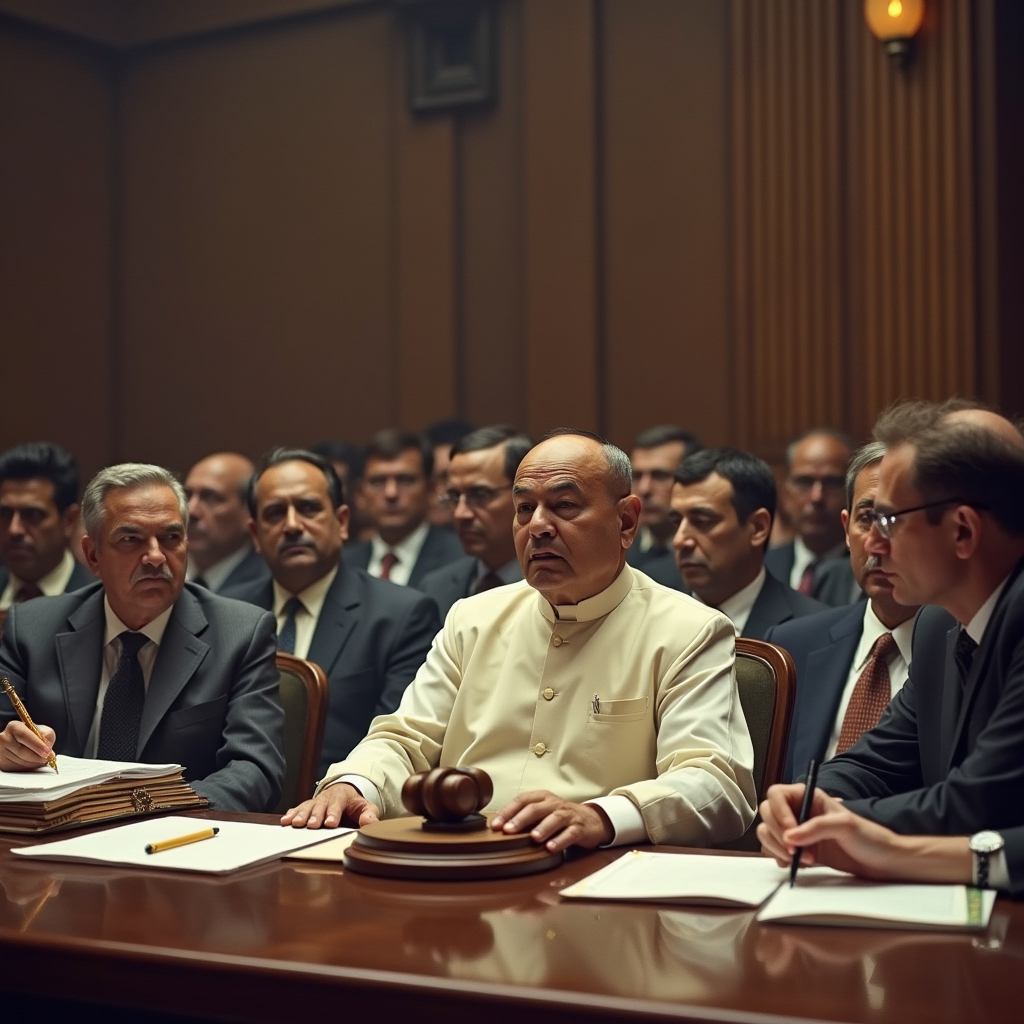
- Sirdar Gurdayal Singh vs. Rajah of Faridkot (1894): In the case of Sirdar Gurdayal Singh vs. Rajah of Faridkot (1894), the issue was related to the validity of a decree passed by a Faridkot Court. The case was that a defendant in this case had ceased to be a resident of Faridkot and was then residing in Jhind, which was another princely state. The defendant contended that the decree passed was null and void under international law as the court had no jurisdiction over him after he left Faridkot. It was observed by Lord Selborne that territorial jurisdiction applies to a person when he is residing in the territory but this does not extend beyond the boundaries of the territory, specifically when the person has left the place and is residing in another territory. He emphasised that a decree passed by the court in the absence of a foreign court is null and void.
- Commissioner of Waqfs, Bengal vs. Narsingh Chandra Daw and Co. (1939): In the case of Commissioner of Waqfs, Bengal vs. Narsingh Chandra Daw and Co. (1939) the matter was related to the interpretation of Section 70 of the Bengal Waqf Act. This Section mandated that before a waqf property is sold, a notice is required to be given to the Commissioner of the Waqfs. The issue was whether a Court of Assam was under an obligation to follow this Section when dealing with a waqf property situated outside Bengal. The Calcutta High Court held that the obligation put by Section 70 of the Bengal Waqf Act is not applicable beyond the geographical limits of Bengal. Therefore, the Court of Assam had no obligation to send any notice to the Commissioner of Waqf in Bengal for the property which was not in Bengal.
- Madangopal Bagla vs. Lachmidas (1948): The case of Madangopal Bagla vs. Lachmidas (1948) revolved around the interpretation of some provisions of the United Provinces Encumbered Estate Act 1934. The issue was whether a decree obtained from the original side of the High Court of Calcutta could be executed when there has already been a proceeding that has taken place in the Court of Special Judge in Benaras (Varanasi) under the Act. The main issue was whether the jurisdiction of the Special Judge prevented the execution of decrees obtained from the courts outside of the United Provinces (now Uttar Pradesh). The court examined Section 18 of the Act in amalgamation with Sections 7, 13 and 14(7), these explained the jurisdiction of the Special Judge in the debts enforceable by the court within the province. It was decided that the authority of the Special Judge does not exceed the decree obtained by the courts outside the state. Therefore, the holder of the decree was not barred from exhausting the decree obtained by the court outside the United Provinces.
- Maharaj Kishore Khanna vs. Raja Ram Singh (1953): In the case of Maharaj Kishore Khanna v. Raja Ram Singh (1953) the issue was whether the decree passed by the Special Judge under Section 14(7) of the United Provinces Encumbered Estate Act 1934 could be enforced outside the territorial jurisdiction of the United Provinces (Uttar Pradesh). The court observed that despite the broad power vested with the Special Judge within the United Provinces, their decrees are not applicable outside the boundaries of the state. A brief fact was that the Special Judge of Benaras passed a decree that was tried to be executed in Purnia, Bihar. It was held that the Special Judge of Purnia held no jurisdiction to execute that decree.
- State of Bombay vs. R.M.D. Chamarbaugwala (1957): In the case State of Bombay vs. R.M.D. Chamarbaugwala (1957) the Supreme Court dealt with the constitutionality of the Bombay Prevention of Gambling Act 1887. The issue was whether the tax could be imposed by the Act on a lottery conducted outside Bombay but significant work was carried on in the state. A brief fact was that the respondent organised a lottery outside Bombay, the tickets were printed in another state, however, they were widely circulated and sold in Bombay. So the issue was if Bombay can impose tax on the activity conducted outside its territorial limits. It was held that the Act was valid and enforceable. Although the lottery was organised and printed outside Bombay, some other significant activities like the sale of the tickets, participation of the gamblers and distribution of prizes were done in Bombay and these activities are enough to establish a territorial nexus or connection between the business and the state.
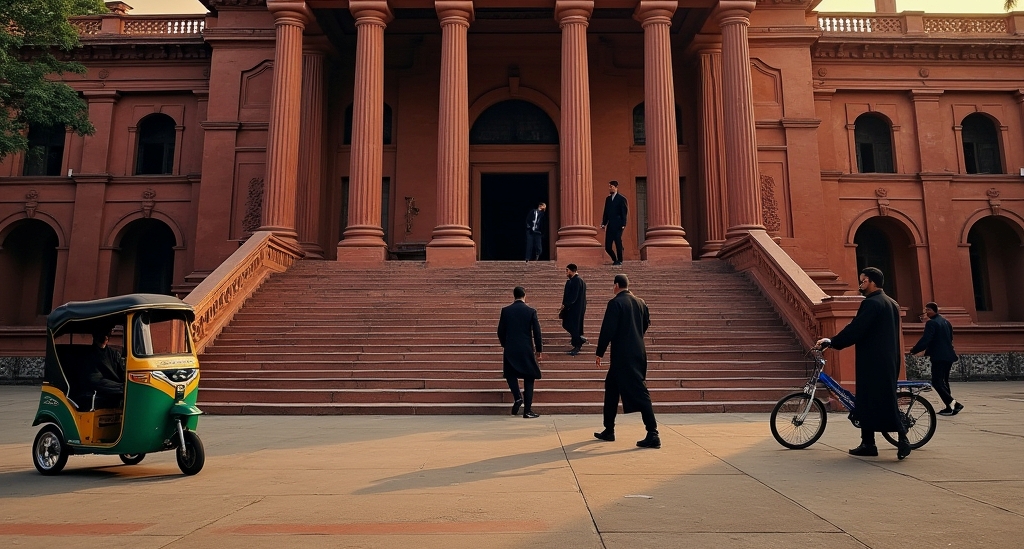
Final decision
- The Supreme Court decided that Charusila Dasi’s trust was a public trust and not a private trust. It was observed that the trust was established for the benefit of the broader Hindu community and not only for the worship of a family idol. The trust deed mentioned the construction of the two temples, it did not restrict the right to worship to the family of the settlers or to any particular community but both temples were to be opened for the public to worship. The trust deed also mentioned the celebration and performance of various ceremonies and festivals that would involve the participation of the public at large (the daily worship was “sheba puja” of the marble image of Shri Balanand Bramhachari, and annual celebrations included “janmatithi” which is the anniversary of the installation of the marble image, “Guru Purnima” which is the full moon in the Bengali month of Ashar and “Tirodhan” which is the anniversary of the day on which Shri Balanand Bramhachari gave up his body). Furthermore, the trust deed mentioned the establishment of the deity and the performance of rituals that would be open to the public.
The Court also observed that the High Court also ignored that clause of the trust deed which expressly stated the offering of “pronamis” and prerequisites by the public which were to form the part of the trust estate. Schedule E mentioned a few more ceremonies like “Jal Chhatra” (distribution of water), and “annakoot” (distribution of food) during Diwali, next was the “bhandara” (free distribution of food), these were ancillary to Deba Sheba and were aimed at benefiting the large community. Some other festivals that were to be performed were Rath Yatra, Jhulan, Janmashtami, Gurupurnima and Tirodhan, and as per the trust deed these festivals were to be performed on a large scale so that other disciples could also join.
Therefore, the Charusila Dasi Trust was a public trust and the provisions of the Bihar Hindu Religious Trusts Act 1950 were applicable to it.
- The Supreme Court further noted the observation made by the High Court related to the hospital and the dispensary. The High Court opined that the establishment of the hospital and dispensary was incidental and ancillary to the objectives of the trust; however, the Supreme Court respectfully disagreed to this decision, noting that the trust deed imposes a distinct and independent trust for the benefit of a considerable section of the public It was a fact that these were to be established after the construction of the two temples and establishment of the deities but that would not make the trust related to the hospital and dispensary merely incidental or ancillary to the other trust. It merely determines the time at which work is to be given priority.
- The court observed that the Bihar Hindu Religious Trusts Act 1950 intends to provide for the better administration of Hindu religious trusts in the State of Bihar and for the protection of properties related to them and in the present case, this Act is doing same for Charusila Dasi Trust and its properties in the State of Bihar. In the present case, the provisions of the Bihar Hindu Religious Trusts Act 1950 were constitutional and did not infringe on any fundamental rights enshrined under Part III of the Constitution of Srimati Charusila Dasi. It was further observed that the Act did not have extra-territorial operations and that the provisions were limited to the State of Bihar.
- The Supreme Court held that the trust had sufficient territorial nexus with the State of Bihar. The court observed that this public trust was established for the benefit of the broader Hindu community in Bihar, and the religious endowment was also situated in the territory of Bihar. Furthermore, the trust deed mentioned the construction of two temples, a hospital for Hindu women and a dispensary, all of which to be situated in Bihar. Hence, it was concluded that there was a real territorial connection, and no illusionary connection, between the trust property and the State of Bihar and therefore, the liabilities imposed by the act on the trustee were relevant to that connection.
- Based on the observations made above, the Court decided that the income of the trust, including the income that was not used for the hospital and the dispensary, was exempted from tax under Section 4(3) of the Income Tax Act of 1922. The reason being that the trust was a public charitable and religious trust.
Rationale behind this judgement
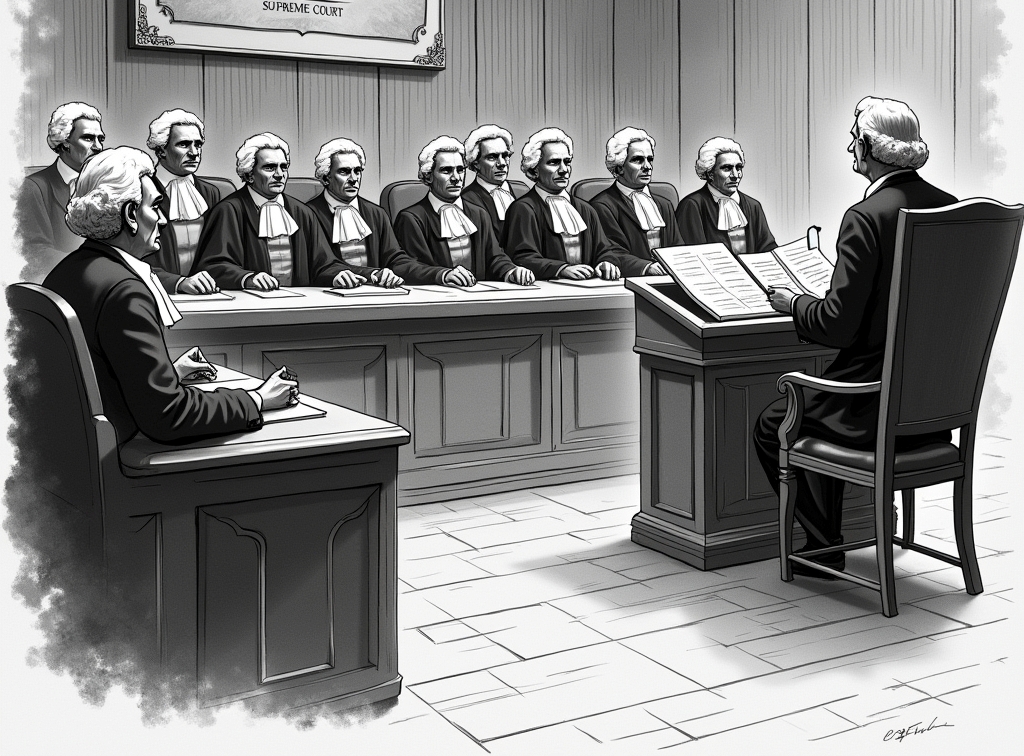
- The observation made in the first issue that the Charusila Dasi trust was a public endowment was made relying on the cases of Deoki Nandan vs. Murlidhar (1956) and Prasaddas Pal vs. Jagannath Pal (1932), and the next part of the issue that the provisions of the Bihar Hindu Religious Trusts Act 1950 were applicable to the trust was made taking into consideration the wordings in the Sections 2 (1)(l), 3 and 59 and 70 of the Bihar Hindu Religious Trusts Act 1950, which proved that the trust is a private religious endowment and thus the Act was applicable to it.
- The observation made in the second issue that the provisions of the Bihar Hindu Religious Trusts Act 1950 were constitutional and did not infringe any fundamental right of Srimati Charusila Dasi enshrined under Part III of the Constitution was made relying on Sections 1(2), 2(1)(l) of the Bihar Hindu Religious Trusts Act 1950, Article 19 of the Constitution of India.
- The observation made in the third issue that the trust had sufficient territorial nexus with the State of Bihar was made relying on Sections 3, 59 and 70 of the Bihar Hindu Religious Trusts Act 1950, Article 245 of the Constitution of India and the cases of Tata Iron & Steel Co. Ltd. vs. State of Bihar (1958), Sirdar Gurdayal Singh vs. Rajah of Faridkot (1894), Commissioner of Waqfs, Bengal vs. Narsingh Chandra Daw and Co. (1939), Madangopal Bagla vs. Lachmidas (1948), Maharaj Kishore Khanna vs. Raja Ram Singh (1953) and State of Bombay vs. R.M.D. Chamarbaugwala (1957).
- The observation made in the last issue of the case was based on the observation made by the court in the case of In re Charusila Dasi & Others (1946) and relying on Section 4(3) of the Income Tax Act 1922.
Analysis of the case
There were various important aspects that were discussed in the case of State of Bihar vs. Charusila Dasi (1959), they are listed as follows:
- Public trust vs. Private trust: The trust deed was thoroughly analysed, and it was observed that it mentioned the construction of two temples, a hospital and a dispensary for the public to worship and carry on other activities, which showed that the religious trust was a public trust and was established for the benefit of the broader Hindu community.
- Territorial nexus: To determine the applicability of the Bihar Hindu Religious Trusts Act 1950 to Charusila Dasi Trust, the Supreme Court considered the doctrine of territorial nexus This doctrine of territorial nexus explains that a law is applicable to a business or organisation if an original nexus or connection is there between the State and that business or organisation. The court in this case concluded that the trust had proper nexus with the State of Bihar because, although some of the properties were outside of the territory, some significant activities of the trust were carried out in Bihar.
- Legislative authority of the state: Referring to Article 245 of the Constitution, the court examined the legislative authority of the State of Bihar for making legislations and imposing a tax on the Charusila Dasi trust. It was concluded by the court that the State of Bihar had full legislative authority to pass any law or impose a tax on the trust because there was a proper nexus between the trust and the State.
- Exemption of tax: The court, referring to Section 4(3) of the Income Tax Act 1922, observed that the income of the trust, including the amount used for the hospital and dispensary, is exempted from tax because the trust was a public religious endowment.
Cases that referred to the judgement of the case
- Dhaneshwarbuwa Guru Purushottambuwa vs. Charity Commissioner, State of Bombay (1976): The case of Dhaneshwarbuwa Guru Purushottambuwa vs. Charity Commissioner, State of Bombay (1976) involved an issue which was to determine whether the Shri Vithal Rukhamai Sansthan which consists of a temple and a tomb (samadhi) of a religious figure, was a public trust under Bombay Public Trusts Act, 1950. The Sansthan was considered as a public trust but the decision was reversed by the district court. The case was taken to the Supreme Court where the Court said that the status of the institute was to depend on its historical and traditional facts. The mere fact that the public was allowed to visit the temple wasn’t enough to declare it a public trust. The Court observed that the public was allowed to visit the temple only after paying a certain amount.
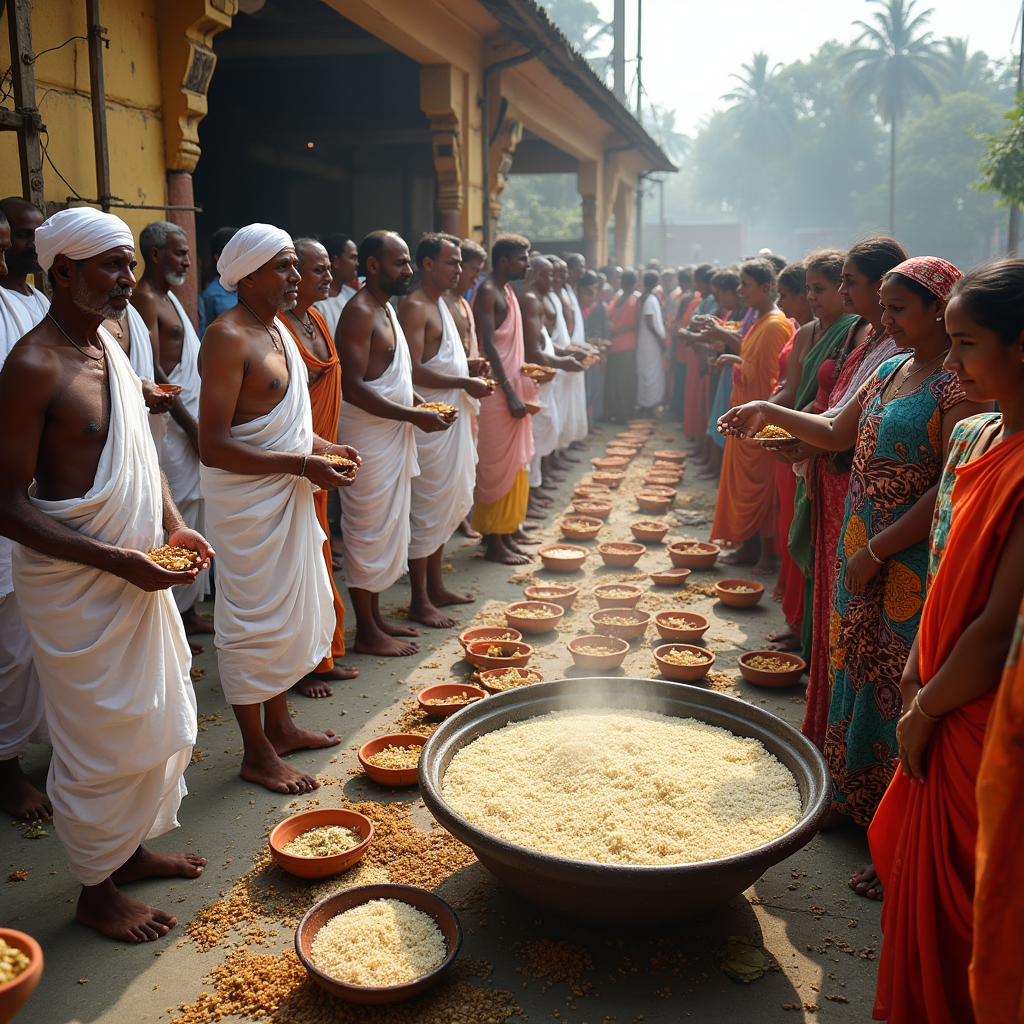
The State of Bihar vs. Charusila Dasi (1959) was referred to determine the nature of the institution as a private or public trust. In Charusila Dasi case the trust was considered as public trust because the general public was allowed to visit and worship the deity established inside the temples and were free to participate in various ceremonies held by the trust during different occasions, the general public was not restricted from visiting the temple in any way which showed that the had the right to visit the temple, however, in the Dhaneshwarbuwa’s case the general public was allowed to visit and worship the temple deity only after paying a certain amount which indicated that they were invitees and visiting the temple was not a matter of right for them. The petitioner also issued the pamphlets for this purpose. The Court observed that a religious institution can be a public trust only if it is maintained for the public purpose. But the matter was not the same for the Sansthan here.
Hence, the Court decided that the Shri Vithal Rukhmani Sansthan was a private trust and not a public trust.
- Rapti Commission Agency vs. State of Uttar Pradesh (2003): In the case of Rapti Commission Agency vs. State of Uttar Pradesh (2003) the Rapti Commission Agency, the petitioner, was a sole proprietorship concern, its business involved getting purchase orders from principals situated outside of Uttar Pradesh and purchasing mentha oil from the state farmers. The agency challenged the constitutionality of Section 8-E of Uttar Pradesh Trade Tax Act 1948, as per this Section the agency was required to pay the trade tax on the purchases made in the state of Uttar Pradesh, even though the principals belonged to some other state. It was argued by the agency that the Uttar Pradesh legislature was not a competent body to make laws related to the transactions taking place outside the territorial jurisdiction of the state. The case was taken to the Supreme Court, and the Court upheld the validity of Section 8-E relying on the doctrine of territorial nexus which was established in the case of State of Bihar vs. Charusila Dasi (1959). The part of the judgement that was referred to in this case was that,
It is a well-settled general presumption that the Legislature does not intend to exceed its jurisdiction, it rather intends its law to be effective, therefore, the law should be interpreted in a way that allows them to work and not to fail.
The Court observed that the state legislature has the power to make such laws that have effect on the property or transactions situated outside the territorial limit of the state, as long as there is a real and no illusionary connection between the subject matter and the legislation. The Court observed that the purchase of mentha oil in Uttar Pradesh had real and substantial connection with the state and thus justifies the application of the trade Act.
- Smt. Poonam Rani vs. State of Uttar Pradesh (2022): The case of Smt. Poonam Rani vs. State of Uttar Pradesh (2022) involves the question of the constitutionality of the Uttar Pradesh Gangsters and Anti-Social Activities (Prevention) Act, 1986. The petitioner, Smt. Poonam Rani was booked by the police under this Act. She challenged the FIR and the proceedings against her under the Act.
While deciding the case the High Court of Allahabad referred to the doctrine of territorial nexus established in the case of State of Bihar vs. Charusila Dasi (1959). The Court observed that the state legislature can make laws that have effect on the property or transactions that are situated outside the territorial limits of the state, as long as there is a real connection and no illusionary connection between the subject matter and the legislation. Applying this principle the Court checked whether the application of the Uttar Pradesh Gangsters and Anti-Social Activities (Prevention) Act, 1986 was valid to the petitioner even though some of the alleged offences were carried out outside the territory of Uttar Pradesh.
The Court decided that there was a real and substantial connection between the activities of the petitioner in Uttar Pradesh and the state which justifies the application of the Act and the proceedings carried out against the petitioner under the Act. The Court dismissed the writ petition upholding the validity of the Uttar Pradesh Gangsters and Anti-Social Activities (Prevention) Act, 1986.
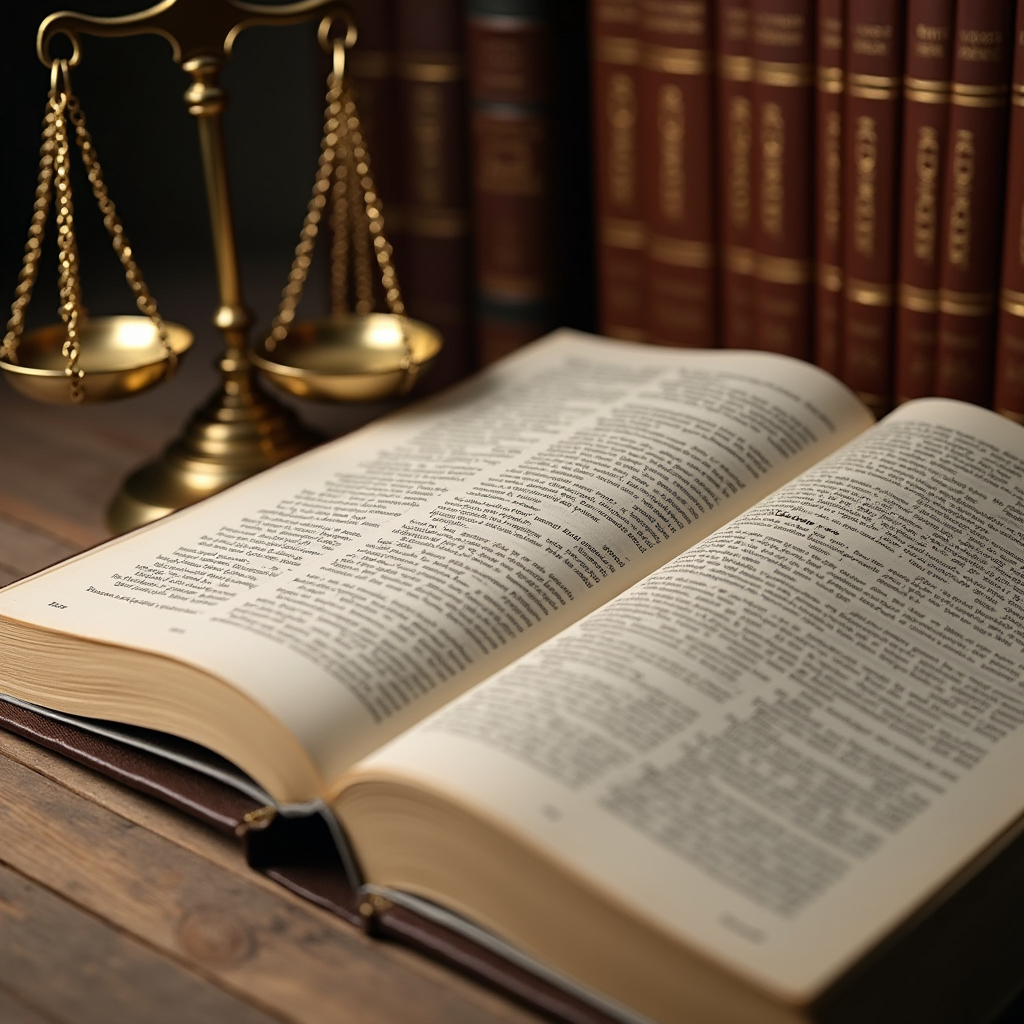
Conclusion
The case of State of Bihar vs. Charusila Dasi (1959) is a very crucial case to understand the establishment of religious trusts and their process of administration. Firstly, the Supreme Court categorised the Charusila Dasi as a public trust. Secondly, the court established the proper original nexus between the trust and the State of Bihar in order to conclude that the Bihar Hindu Religious Trusts Act 1950 did apply to the trust and was constitutional. Lastly, the court exempted the income of the trust from tax because it was a public charitable and religious trust that was established for the benefit of the border Hindu community. This case is significant to understanding the legislative power of the state to make laws for businesses or institutions that are functioning outside of the state but carry out significant activities in the state.
Frequently Asked Questions (FAQs)
What is a trust deed?
A trust deed is a legal document that explains the terms and conditions of a trust, which include the formation of a trust, the roles and responsibilities of the parties to the deed and the purpose for which it is established. This document is used in real estate transactions to secure loans.
What is the meaning of trustee and what are his roles?
A trustee is a person who is responsible for administering and managing the assets within the trust. The trustee ensures that the assets are protected and are equally distributed among the beneficiaries as per the agreement terms. Their primary role is to manage the assets in the best interest of the beneficiaries.
What is the writ of certiorari?
The writ of certiorari is a legal mechanism used by the higher courts to review the decisions of the lower courts. The primary work of this writ is to check whether the lower body has correctly applied the law. The High Courts under Article 226 and the Supreme Court under Article 32 hold the power to issue this writ. The higher courts can quash the decisions of the lower courts, through this writ, if they have violated the principle of natural justice or made errors in the interpretation of any law.
What is the writ of prohibition?
The writ of prohibition is a legal mechanism that the higher courts issue to the lower courts to prohibit them from exercising their power beyond their jurisdiction. The High Courts under Article 226 and the Supreme Court under Article 32 have the power to issue this writ. This is a discretionary remedy used in judicial review of administrative actions to prohibit a body from exercising public power beyond its power and jurisdiction.
References
- Mahendra Pal Singh, V.N.Shukla’s Constitution of India (EBC Publishing Pvt. Ltd., Lucknow, 13th ed., 2017)
- http://ijisar.com/wp-content/uploads/2021/06/Rajat-Upadhyay.pdf
- https://www.freelaw.in/legalarticles/The-Writ-of-Certiorari
- https://www.freelaw.in/legalarticles/The-Writ-of-Prohibition
Students of Lawsikho courses regularly produce writing assignments and work on practical exercises as a part of their coursework and develop themselves in real-life practical skills.
LawSikho has created a telegram group for exchanging legal knowledge, referrals, and various opportunities. You can click on this link and join:
Follow us on Instagram and subscribe to our YouTube channel for more amazing legal content.
 Serato DJ Crack 2025Serato DJ PRO Crack
Serato DJ Crack 2025Serato DJ PRO Crack










 Allow notifications
Allow notifications


